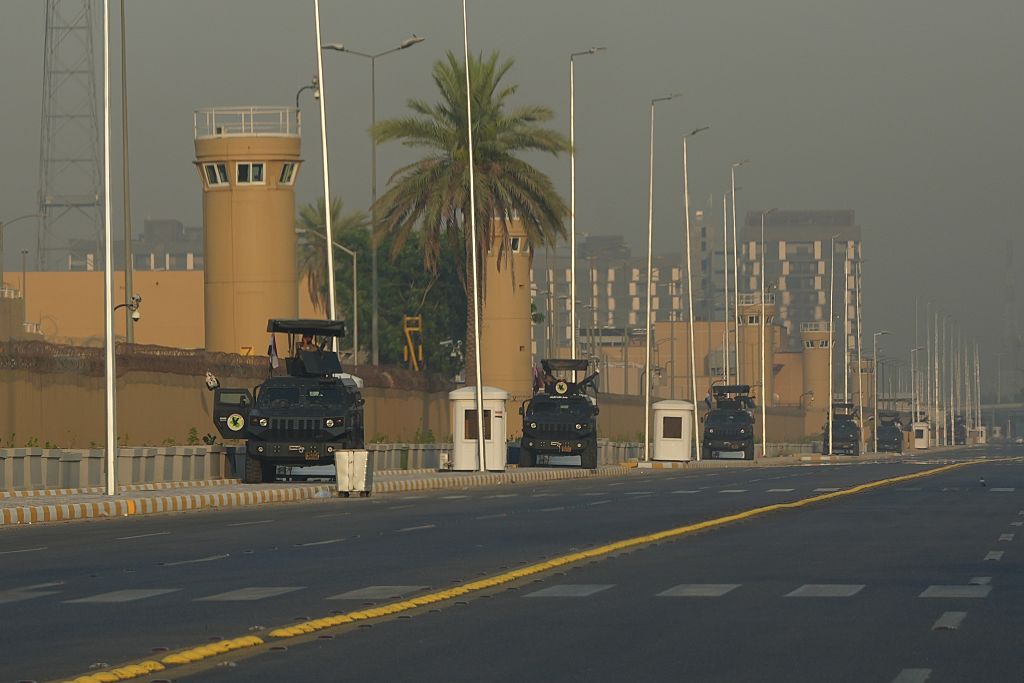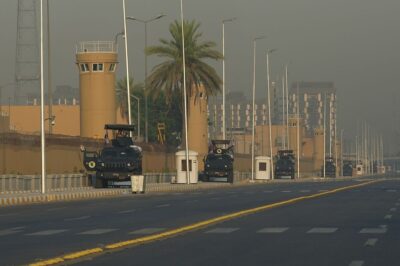
Introduction
In a significant move reflecting escalating tensions in the Middle East, the United States has ordered the partial evacuation of its diplomatic missions in Iraq, Bahrain, and Kuwait. This decision comes in response to heightened security concerns linked to stalled nuclear negotiations with Iran and increasing regional instability.
Diplomatic Drawdown in Iraq, Bahrain, and Kuwait
The U.S. State Department has directed the departure of non-essential personnel from the U.S. Embassy in Baghdad and authorized voluntary departures from its embassies in Bahrain and Kuwait. This precautionary measure aims to safeguard American diplomats amid growing threats from Iran and its allies in the region. The Pentagon has also permitted military dependents to leave voluntarily, although active-duty personnel remain stationed at their posts.
Escalating Tensions with Iran
The evacuation orders coincide with a critical juncture in U.S.-Iran relations. Diplomatic efforts to curb Iran’s nuclear ambitions have stalled, with Tehran continuing to enrich uranium to near weapons-grade levels. In response, the International Atomic Energy Agency (IAEA) has issued its most severe censure of Iran in two decades, raising concerns about potential UN sanctions. Iran maintains that its nuclear program is peaceful and has vowed retaliation if provoked.
Potential for Military Conflict
Former U.S. President Donald Trump has warned of a “massive conflict” if nuclear talks with Iran collapse. His comments come amid reports that Israel is prepared to launch a pre-emptive strike on Iran’s nuclear facilities, even without U.S. support. The Trump administration has emphasized the importance of diplomatic solutions but has also signalled a strong stance against Iran acquiring nuclear weapons.
Security Concerns in Iraq
The U.S. Embassy in Baghdad has been a frequent target in past conflicts, and the current security environment has prompted a reduction in staff. While Iraqi officials have stated that there are no current threats necessitating evacuation, the U.S. has taken a cautious approach, prioritizing the safety of its personnel. The embassy continues to operate with a core team of American diplomats and advisors to the Iraqi military.
Regional Implications
The partial evacuation of U.S. diplomatic missions underscores the broader concerns about regional stability. The UK’s Maritime Trade Operations has warned of potential military escalation affecting shipping routes in the Gulf. Additionally, intelligence suggests that Iranian-backed militias may target U.S. interests in the region, further complicating the security landscape.
Conclusion
The United States’ decision to withdraw non-essential personnel from its embassies in Iraq, Bahrain, and Kuwait highlights the growing concerns over Iran’s nuclear program and the potential for regional conflict. While diplomatic efforts continue, the situation remains fluid, and the international community watches closely as developments unfold. The partial evacuation serves as a precautionary measure to ensure the safety of American diplomats amid increasing tensions in the Middle East.









































Leave a Reply